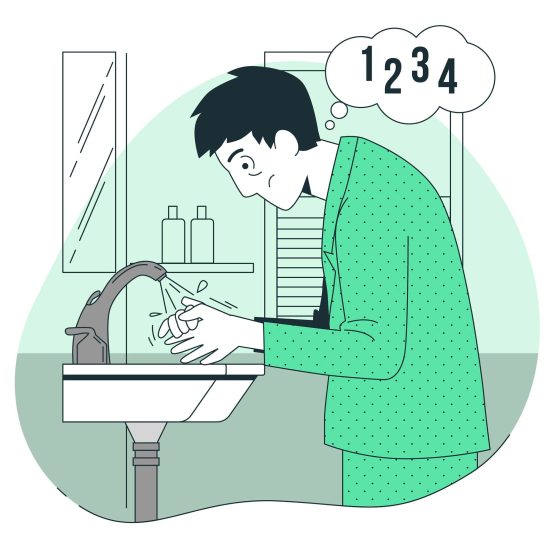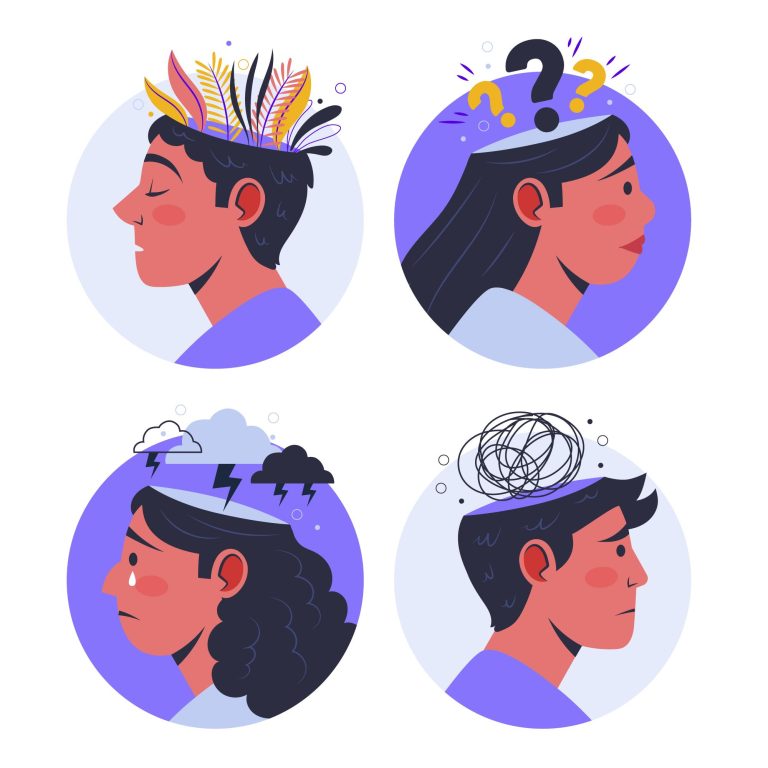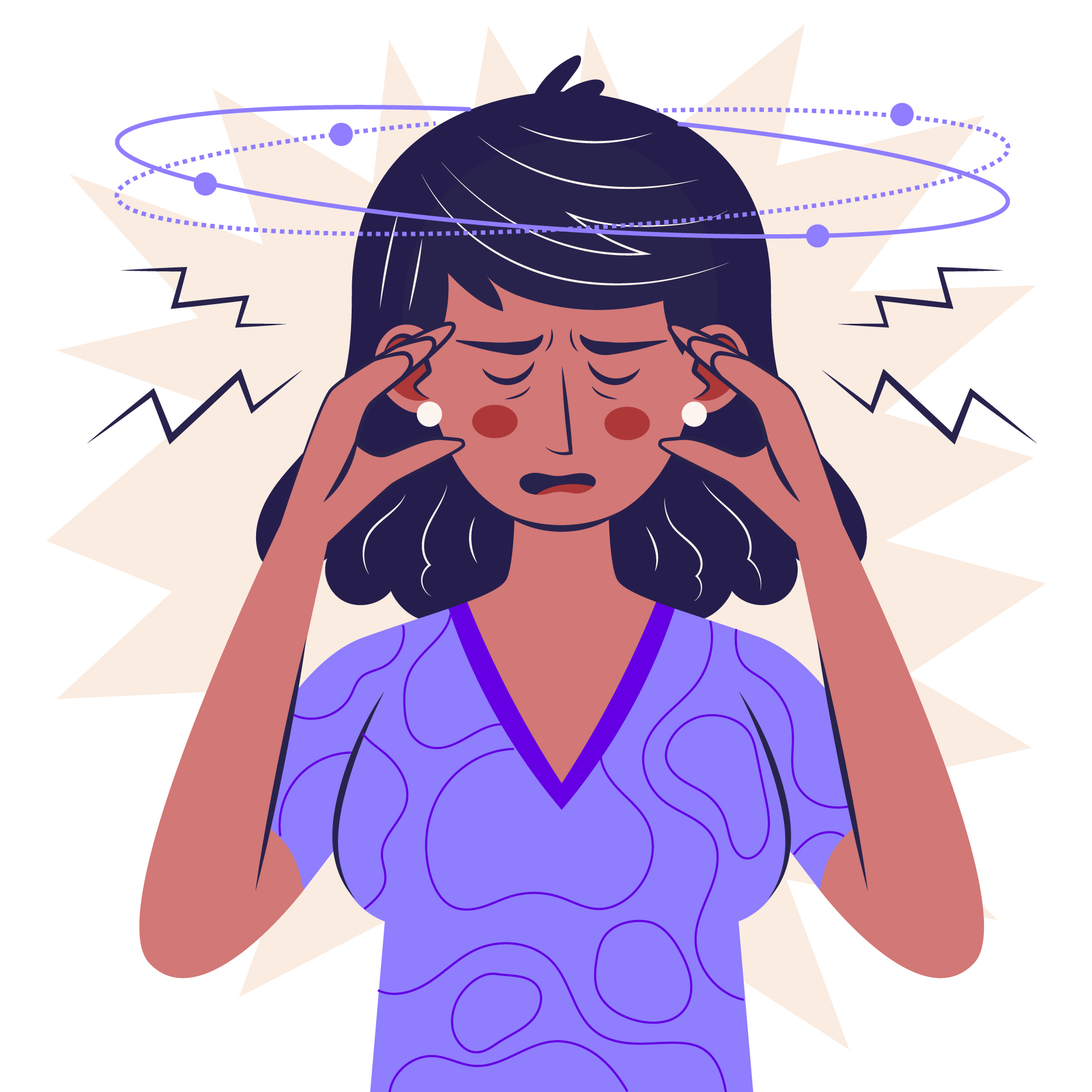
OCD is a deeply misunderstood disorder. Often, we see people around us referring to someone as being “extremely OCD,” when they are talking about someone who is keen on cleanliness and order.
When people talk about OCD, they tend to miss out on the more difficult, less-understood parts of it. It is much more than being a “neat-freak.” Learning more about the actual symptoms of OCD can help you understand the disorder better for yourself and others around you. This way, you can seek the right type of help and be aware of the signs of Obsessive Compulsive Disorder.
This article is a guide to understanding what Obsessive Compulsive Disorder, or OCD, is, its symptoms, treatment options, and ways to manage it.
What is Obsessive Compulsive Disorder?
Obsessive Compulsive Disorder is an anxiety disorder where you can have repeated thoughts in your mind, which causes you extreme anxiety. These are known as “Obsessions.” As a result of these thoughts, you may feel anxious. And to feel better, you may find the need to do something. These are referred to as “Compulsions.”
If you experience OCD, you may also experience severe anxiety, guilt, and difficulty in leading a normal life. Thus, it would be incorrect to assume that someone who is simply particular about being clean and orderly has OCD.
Common Obsessions in Obsessive Compulsive Disorder
Obsessions are repeated, intrusive thoughts you may experience. These thoughts could be shameful, scary, or worrying in nature. Sometimes, people may also have obsessive thoughts that go against their cultural and religious beliefs.
Obsessions aren’t simply “thoughts.” Obsessions are relentless thoughts and ideas that can keep bothering you and cause you a lot of discomfort. They are difficult to get rid of.
While obsessions may vary with each individual, there are some common obsessions that occur in OCD. These are:
- Fearing that you will be contaminated with germs, or that you will be dirty.
- Having unacceptable intrusive thoughts about sex and religion that goes against personal and societal beliefs.
- Feeling like everything should be symmetrical, in order, or be “just perfect.”
- Worrying excessively whether you or someone you know may experience something awful (like death or an accident.)
Many people may experience a fear of losing their loved ones, or may have sexual fantasies, or may feel like everything should look neat. These are quite common and normal.
But, these thoughts turn into obsessions when they become intrusive and keep you from having a healthy life.
Common Compulsions In Obsessive Compulsive Disorder
Also, at times obsessions can feel extreme, immoral, or unacceptable. You may feel like you are unable to control or get rid of it. So a way to reduce the anxiety we feel from these thoughts is to do certain things or “compulsions.”
Compulsions are actions you do to reduce the anxiety, fear, or shame created by obsessive thoughts. Some of the common compulsions are:
- To feel more clean and free from germs, you may repeatedly wash your hands with soap, sanitize your hands, take frequent baths, or you may avoid sharing items with others.
- To reduce unacceptable thoughts of sex or religion, you may pray more, or use certain rituals to avoid the thoughts.
- To manage the thoughts of things being perfect, you may ensure that you follow a strict routine, you may spend a lot of time ensuring things are in correct order.
- To handle the fear of something dangerous happening to you or your loved one, you may repeatedly check if you or others are safe. You may look out for weapons, or check if there is anything that may cause harm.
- Compulsions are not just “habits.” They are a response to the overwhelming fear and anxiety you may experience from obsessive thoughts.
Compulsions can impact your self-esteem, ability to function normally, and may cause you to avoid situations or people that can trigger these feelings. You may feel deeply guilty, conscious, or shameful of what your mind tells you. You may also feel powerless over your mind.
However, OCD is a completely manageable condition. With the right support and professional help, you can address the root cause of your OCD, and work towards a peaceful and happy life.
What Causes Obsessive Compulsive Disorder?

Like other Anxiety Disorders, OCD is also deeply rooted in anxiety.
These anxieties could be deeper fears about losing control, dying, or may fear being unattractive or unloved. Since these anxieties are too painful, uncontrollable, or difficult to process, our brain creates ways to gain a sense of relief and control over the anxiety.
Thus, acting on the compulsions can bring us temporary relief from the anxious, obsessive thoughts. OCD also protects us by making us avoid things that trigger our fears. For example, those who may experience fear of being contaminated may avoid using common items, or visiting public places.
OCD can be caused due to genetics, or may be linked to stressful life events. It may also co-occur with other anxiety disorders. We understand how disturbing, exhausting, and difficult OCD can be.
However, with support and time, you will be able to manage these obsessive thoughts without feeling deeply anxious.

Are your anxieties holding you back?
Counseling can be a great tool for you to manage and overcome Obsessive Compulsive Disorder and lead a happy, stress-free life.
We are here for you.
Managing Obsessive Compulsive Disorder
OCD is a condition that can be managed with the right kind of self and professional support, and lifestyle changes. We have mentioned some ways OCD can be managed below:
- Since OCD is an anxiety disorder, it can worsen with stress. Therefore, following a healthy diet, exercising, and taking up hobbies can reduce your stress levels and OCD symptoms.
- Meditation and Mindfulness are great tools for you to stay focused, present, and feel less stressed. Performing deep breathing and mindful awareness exercises can make you feel more in control of the situation.
- Sometimes being simply aware that you are having an obsessive thought can put your mind at ease and make you less likely to act on your thoughts.
- Medication or consuming medicines like benzodiazepines can reduce feelings of anxiety that ultimately reduce the obsessive thoughts.
- Therapy for Anxiety is a great option for those seeking help for OCD.
Counseling And Therapy For Obsessive Compulsive Disorder

OCD can bring out many painful emotions within you. You may feel ashamed, confused, anxious, and misunderstood. You may also be unaware of why your brain keeps giving you distressing thoughts and images.
Therapy or Counseling can be a great option for you to understand, explore, and manage OCD better. Counselors can help you understand the root cause of your OCD, and the deeper fears that lie beneath your obsessive thoughts.
Going for therapy can help you learn more about your experiences, and address the negative emotions and thoughts that are involved with OCD.
OCD or Obsessive Compulsive Disorder is a misunderstood, stressful, and difficult condition. It causes obsessive thoughts and compulsions that can take a toll on your daily life. OCD can be caused due to underlying anxiety, and can be a way for our mind to process extremely anxious thoughts.
OCD is manageable with proper support and some lifestyle changes. This can be a ray of hope for those who are currently suffering from the condition.
If you are suffering from OCD, we are here to help you. Our therapists at Inner Space are trained to help you manage OCD by working from its roots and reducing the negative impacts of the condition.
Understanding and being aware of the reason and causes behind OCD can help you feel more in control of the situation. It can be the first step towards winning the battle of Obsessive Compulsive Disorder.
Frequently Asked Questions
OCD or Obsessive Compulsive Disorder can manifest differently in different people. Some people may notice their symptoms have gone completely, while some may continue to experience the symptoms in varying intensity. However, with early intervention and having healthy coping skills can help ease out the intensity of these symptoms.
OCD cannot be prevented. But, it can be managed with early intervention, counseling, lifestyle changes, and having healthy coping skills in place.
While medications do help in managing certain symptoms of anxiety and OCD, many people do not require them. They can manage their symptoms without medication by going for therapy, using self-help and stress management strategies, and having a healthy lifestyle.
About the Author
This article was written by Parvathi Ganesan, Counselor at Inner Space. This post was consulted & approved by professional therapists practicing online therapy and counseling.
Ask a Therapist
If you are interested to know more about Obsessive Compulsive Disorder and other mental health topics, ‘Ask A Therapist’ is a platform for you to ask your questions related to Mental Health, Mindfulness & Emotional Well-Being to our team of qualified Therapists.




